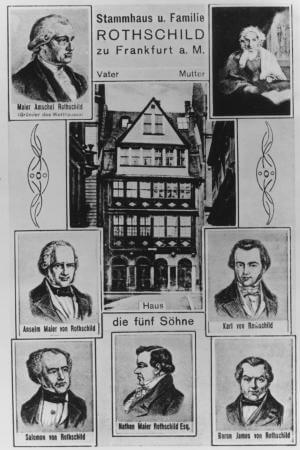a sort of Castilian Rothschild, with a noble brother, or cousin, in every great trading town
This is an anachronism. That the storied Rothschild family had not yet established a widespread business network across Europe in the period Benito Cereno is set. This didn't develop until the first decades of the 19th century; by Melville's time, the family had become a well-known economic powerhouse. Either Melville never bothered to fact check such small details, or else he didn't mind bending the truth a bit in the service of art.

A brief history of the family business from the Rothschild Archive: "Mayer Amschel Rothschild was born in 1744 in the Judengasse, in Frankfurt. His father had a business in goods-trading and currency exchange. He was a personal supplier of collectable coins to the Prince of Hesse. By the early years of the 19th century, Rothschild had consolidated his position, and in 1810, renamed his firm M A Rothschild und Söhne, establishing a partnership with his four sons still in Frankfurt, (his son Nathan Mayer Rothschild (1777-1836) having already established a business in Manchester and London).
Nathan Rothschild’s increasingly successful business provided a model for his brothers back in Frankfurt. In 1812, James Mayer Rothschild (1792-1868) established a banking house in Paris. Salomon Mayer Rothschild (1774-1855) settled in Vienna in 1820. Carl Mayer Rothschild (1788-1855) set up business in Naples in 1821, leaving Amschel Mayer (1773-1855), to head the Frankfurt bank. From these roots, the Rothschild banking business spread out across much of Europe becoming the most successful international bankers of the age." Rothschild Archive.
Interestingly, the Rothschilds were instrumental in helping another South American nation, Brazil, achieve independence from Portugal in the early 19th century.